Support Services
Biomedical Informatics & Biostatistics

The UArizona Center for Biomedical Informatics and Biostatistics advances the UArizona Health Sciences clinical research enterprise and mission with informatics tools, clinical data sources, and shared human and technical resources.
BSL3
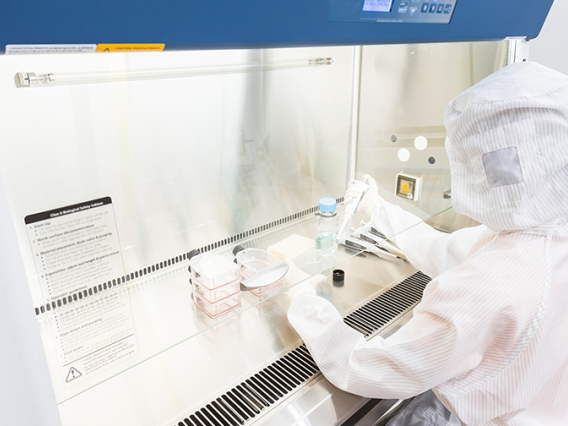
The Biosafety Level 3 (BSL-3) facility is designed to safely handle and store human, animal, and plant infectious agents or toxins. This program also supports the development of projects using Risk Group 3 pathogens for research or clinical diagnosis.Biocontainment facilities make possible development of new treatments, preventative vaccines, and diagnostic tests against Risk Group 3 pathogens and epidemiological surveillance for emerging and reemerging infectious diseases.
To learn more, call (520) 626-6850 or email rlss-help@email.arizona.edu
CyVerse

CyVerse cyberinfrastructure provides scalable solutions for science in the age of big data, machine learning, and artificial intelligence. You don’t have to maintain your own servers, pay for IT services, or worry about security and replication. Our hardware, software, and staff enable you to easily store, share, and analyze large amounts of data for the scientific discoveries that may lie within. CyVerse’s powerful computational infrastructure easily handles the massive datasets and complex analyses of modern science. Offering an unprecedented degree of usability, scalability, and performance through our integrated data management system and compute resources, CyVerse provides one-stop resources for reproducible research, workflow automation, and collaboration for you, your students, and your collaborators.
Data Science Institute

The Data Science Institute aims to foster the next generation of data-driven research by encouraging university-wide interdisciplinary collaboration, gaining external visibility, developing industry alliances, and increasing funding for UArizona research.
Device Prototyping
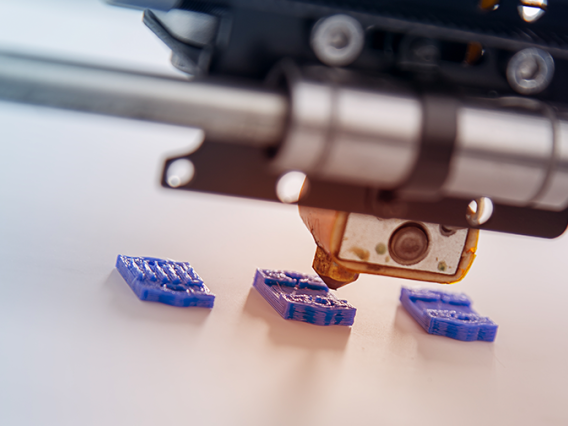
The Biomedical Device Prototyping Service (BDPS) located in the Keating Building is a service provided for UArizona and other researchers to assist in the development of new novel devices, modification to existing devices or development of devices to assist in research activities.
Drug Discovery

The Arizona Center for Drug Discovery (ACDD) serves as a vibrant organizational hub connecting the University of Arizona in Tucson and Phoenix with partnering organizations to advance academic-based drug discovery throughout the state. ACDD promises to energize the drug discovery process across campus, connect UA researchers with partners in the pharmaceutical industry, and help push innovative technologies developed in Tucson from the lab to the patient’s bedside. The center provides state-of-the- art equipment that will help drug researchers move rapidly through the discovery process, identifying the most promising drug compounds before moving into extensive and costly preclinical studies and, later, clinical trials.
Genetics
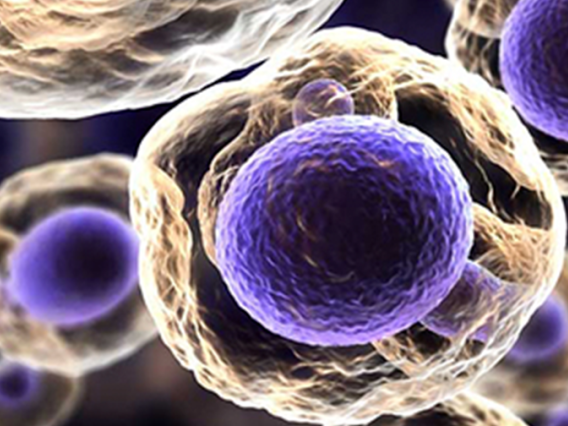
The Arizona Genetics Core offers access to state-of-the-art resources and services to help investigators, educators, students and the biotech community conduct and promote research in the field of genomics.
Human Induced Pluripotent Stem Cell Core
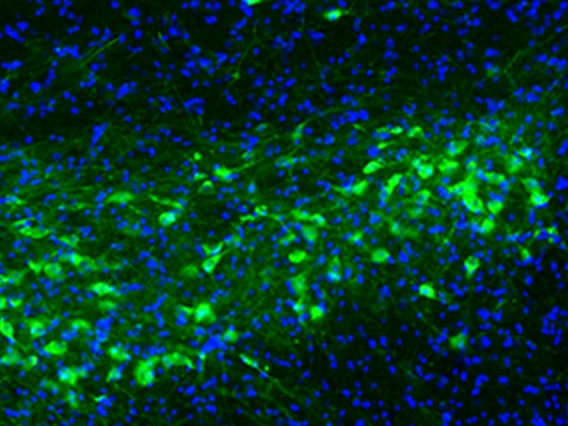
The University of Arizona’s Human Induced Pluripotent Stem Cell (iPSC) Core provides opportunities for students and faculty to be trained with specialized knowledge and skills, support fundamental and translational research, and provide researchers access to stem cell-based technologies and resources to conduct interdisciplinary research that will translate stem cell-based therapies from bench to bedside.
In Vivo Models
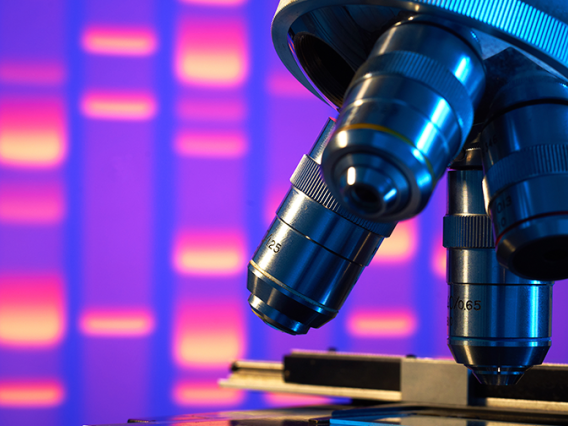
The University of Arizona GEMM Core designs, produces, genotypes, rederives, imports, and cryo preserves genetically modified mice, as well as provides consultation, guidance, and information on the use of genetically modified transgenic and gene-targeted mice in research. The GEMM Core’s services are also available to outside institutions, whether academic, for-profit, or private entities.
Ligand Discovery
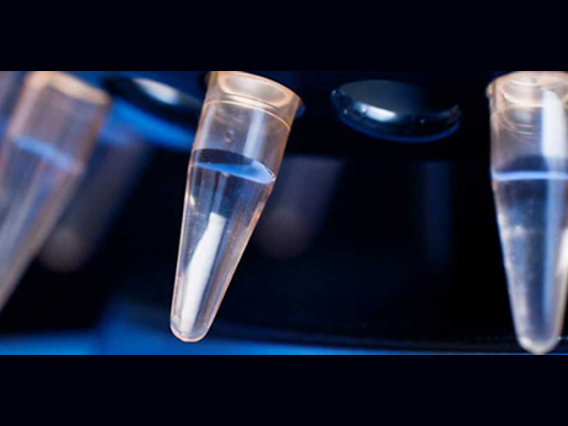
The University of Arizona Ligand Discovery Lab (LDL) is a complex synthetic chemistry and drug design center that supports investigators with substances, libraries, and screenings needed for research and education. The LDL produces unique compounds in combinatorial fashion or arrays that can then be modified with markers or other non-functional parts for purification, imaging, or further conjugation. Compounds are used in drug discovery research.
To learn more, contact Josef Vagner at 520-626-4179
Media Facility
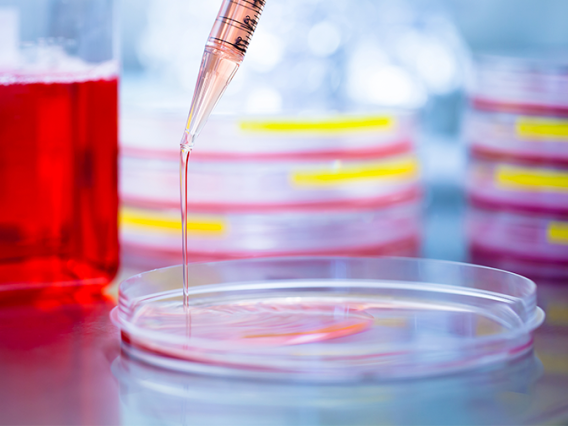
The BIO5 Media Facility maintains high standards of excellence and consistency in preparing a wide array of research materials including microbiological media, buffers, mammalian and insect cell culture media, and plant tissue culture media.
Omics
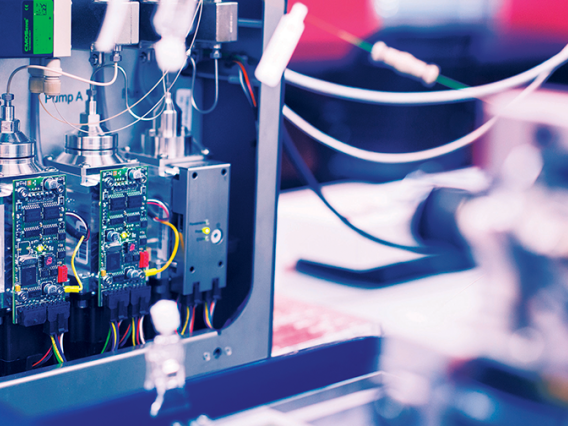
The University of Arizona Analytical & Biological Mass Spectrometry Facility (ABMS) uses state-of-the-art mass spectrometric measurements coupled with innovative bioanalytical techniques and bioinformatic tools to assist investigators with systematic analysis of proteins, peptide, small molecules, metabolite, lipids, DNA, RNA and polymers. The ABMS offers the largest and most mature mass spectrometry services in the state, serving investigators from the academic and private sectors in Arizona, nationally and worldwide.
PacBio Sequencing
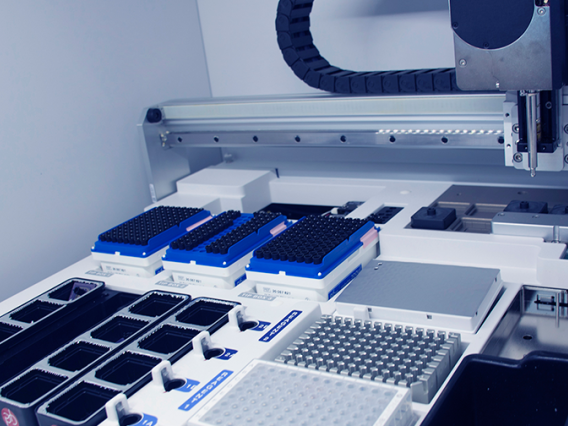
The Arizona Genomics Institute (AGI) offers state of the art genomics services throught the AGI Sequencing Service Center. With over 25 years of research experience in genome biology, the team of professional scientists helps worldwide researchers developing long-read sequencing data, DNA and RNA extraction, and bioinformatic analyses.
Statistics

The University of Arizona Statistics Consulting Laboratory (StatLab) develops and adapts innovative methods to address emerging problems in science and medicine. The StatLab provides statistical expertise, personnel, and computing resources to facilitate study design and conduct, data acquisition protocols, data analysis, and the preparation of grants and manuscripts.
Translational Bioimaging
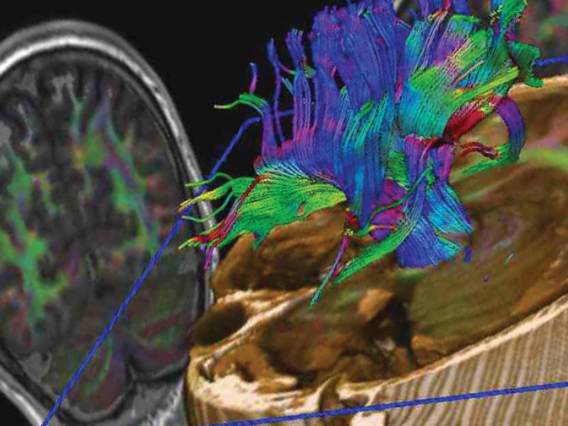
The Translational Bioimaging Resource (TBIR) serves as a university-wide resource for preclinical biomedical imaging. This resource has the capability to image biological constructs, small and large animals, and human participants. The TBIR has expertise in imaging neurological structures and neural systems, progression of aging, cardiac function, blood oxygenation levels, arterial plaques, vascular and skeletal systems, inflammatory diseases such as lipedema, disease progression, response to therapies, and much more.

